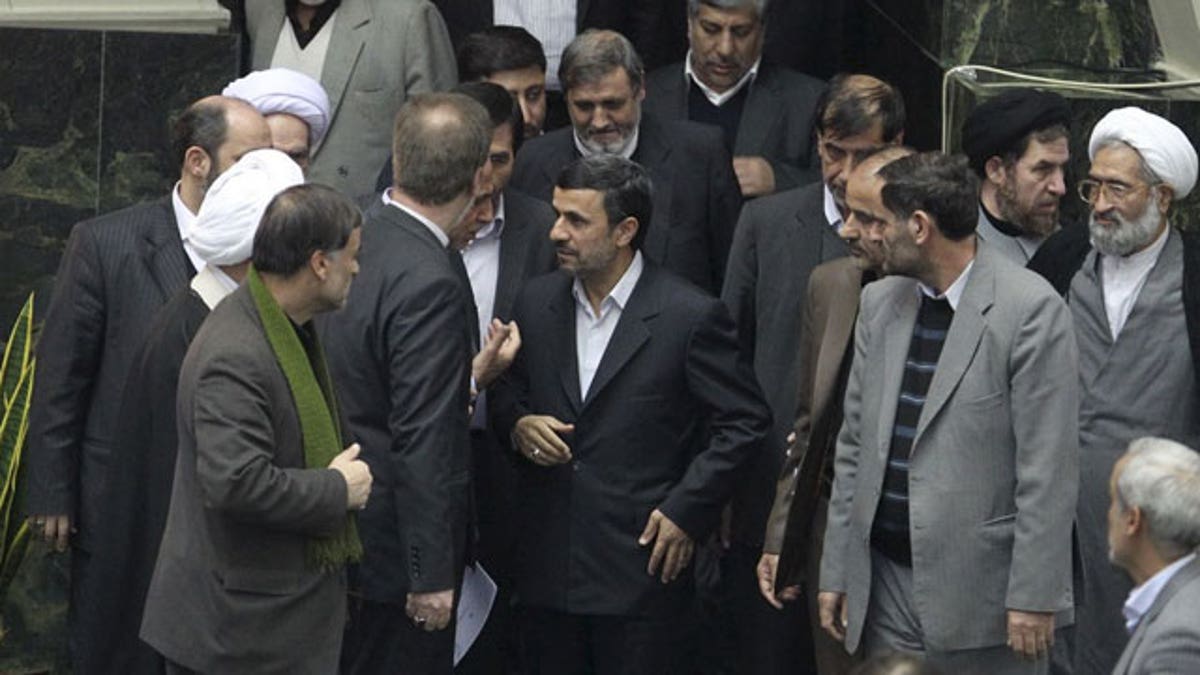
Feb. 1, 2012: In this photo released by the official website of the Iranian President's office, Iranian President Mahmoud Ahmadinejad, center, arrives at the parliament to deliver the new year's budget, as he is surrounded by lawmakers, in Tehran, Iran. (AP)
WASHINGTON – The U.S. Treasury Department disrupted a Dubai-based banking operation that Washington believes had become Tehran's primary conduit for evading international sanctions and processing its oil sales, according to people briefed on the operation.
The effort was particularly sensitive because the targeted institution in the United Arab Emirates is partly owned by the local government of Dubai, a close U.S. ally. The chairman of the bank, called the Noor Islamic Bank, is the son of Dubai's ruler.
In mid-December, Noor agreed to close off what the people briefed on the operation characterized as Iran's single-largest channel for repatriating foreign-currency oil receipts -- facilitating as much as 60 percent of Iran's foreign oil sales by late last year, they estimated.
That figure couldn't be corroborated. But last year, Iran is estimated to have earned more than $80 billion from oil exports -- transactions that came under increasing pressure over the course of 2011 as U.S. sanctions also closed Tehran's banking channels in India, East Asia and Europe.
To read more on this story, see The Wall Street Journal article here.
